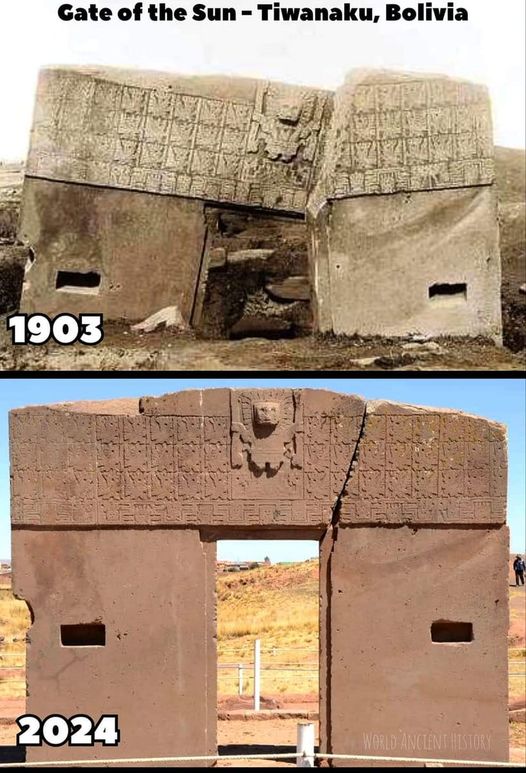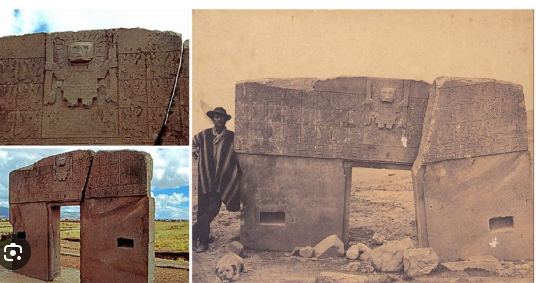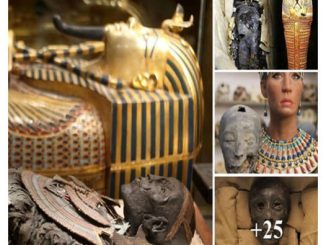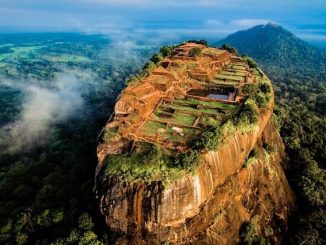A Glimpse into Ancient Bolivian Civilization
Nestled amidst the breathtaking landscapes of western Bolivia, near the shores of Lake Titicaca, lies the ancient city of Tiwanaku—a testament to the ingenuity and cultural richness of pre-Columbian civilizations. At the heart of this archaeological marvel stands the enigmatic “Gate of the Sun,” an iconic structure that has intrigued and fascinated scholars and visitors alike for centuries. As we embark on a journey to uncover the mysteries of Tiwanaku, we are drawn to explore the significance of this ancient gateway and its enduring legacy.

Tiwanaku: A Window into the Past
Tiwanaku, dating back over 2,000 years, represents one of the most significant archaeological sites in South America. Once a thriving urban center and hub of Andean civilization, it boasted impressive architectural achievements and a sophisticated understanding of astronomy and engineering. The city’s strategic location near Lake Titicaca facilitated trade and cultural exchange, leaving behind a legacy that continues to captivate modern-day explorers and historians. Amidst the ruins of Tiwanaku, the “Gate of the Sun” stands as a symbol of the city’s cultural and spiritual significance, inviting us to delve deeper into its mysteries.

Unraveling the Secrets of the “Gate of the Sun”
The “Gate of the Sun” is a monolithic structure adorned with intricate carvings and symbols, believed to have served as a ceremonial entrance to the sacred site of Tiwanaku. Its central figure, thought to represent the sun god Viracocha, is surrounded by a myriad of geometric patterns and depictions of mythological beings. Archaeologists and scholars have long debated the meaning and purpose of these carvings, with theories ranging from astronomical alignments to religious symbolism. Regardless of its original intent, the “Gate of the Sun” remains a testament to the spiritual and artistic achievements of the Tiwanaku people, inviting us to contemplate the mysteries of the cosmos and the nature of existence itself.

A Journey Through Time: Ancient Discoveries
The discovery of the “Gate of the Sun” is just one of many remarkable finds unearthed at Tiwanaku and other ancient sites throughout the world. From the towering pyramids of Egypt to the enigmatic stone circles of Stonehenge, each archaeological discovery offers us a glimpse into the lives and beliefs of our ancestors. Through careful excavation and analysis, archaeologists have pieced together the puzzle of ancient civilizations, uncovering insights into everything from daily life to religious practices to technological advancements. As we marvel at these ancient wonders, we are reminded of the resilience and creativity of humanity across the ages, inspiring us to continue our quest for knowledge and understanding.

Conclusion: Preserving the Legacy of Tiwanaku
As we reflect on the mysteries of Tiwanaku and the “Gate of the Sun,” we are reminded of the importance of preserving and protecting our shared cultural heritage. These ancient sites serve as windows into the past, offering valuable insights into the diversity and complexity of human civilization. By studying and appreciating the achievements of our ancestors, we gain a deeper appreciation for the interconnectedness of our world and the enduring legacy of those who came before us. As we continue to explore the wonders of Tiwanaku and other ancient sites, let us honor the memory of those who built and inhabited these extraordinary places, ensuring that their stories and achievements are preserved for future generations to discover and cherish.



